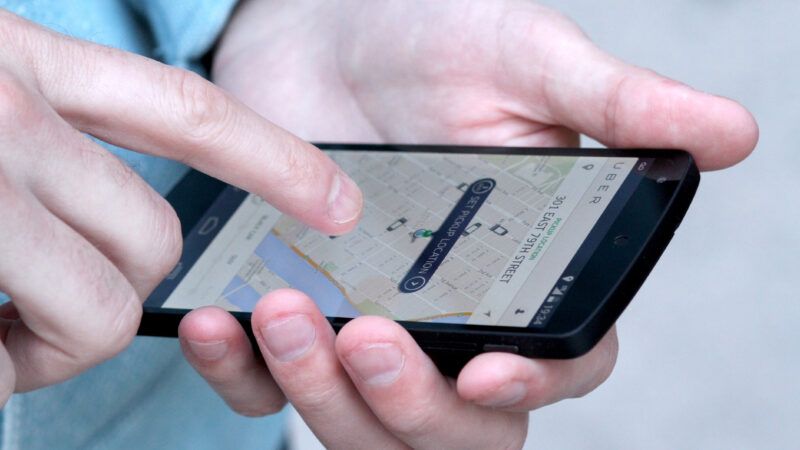The Case for Uber Surge Pricing After a Mass Shooting
In criticizing the move, the New York Post got basic economics wrong.

The media's ignorance about basic economics is galling.
I expect it from politicians. I expect it from The New York Times. But it's sad to see in the New York Post, my town's rare alternative to Democrat media.
Recently the tabloid freaked out over higher prices imposed by ride-share companies. "New Yorkers are fed up with forking over excessive amounts for Uber and Lyft rides."
Excessive? Just what is "excessive?" Who decides?
Prices were already up because gasoline costs more, New York City keeps imposing new taxes and regulations, and the federal government pays so many people not to work that there's now a shortage of drivers.
That day, unusually high "surge" prices were in effect because there had been a horrible shooting on the subway. Commuters, fearful of another subway shooting, turned to ride-share services.
How should a company like Uber deal with that? Suddenly, there is much more demand for rides than supply. Should customers just wait in line? Most wouldn't get a ride for days.
So, ride-share companies do the sensible thing: They temporarily raise prices. They lower them again when there are free cars. This is the best solution for the most people.
Those who desperately need rides can pay extra for them. Those with spare time can take a bus, walk, call a friend, etc., or just wait for prices to drop.
Higher prices also mean higher pay for drivers, which encourages part-time drivers to drop what they are doing and start offering rides.
Such congestion pricing could also reduce traffic jams if politicians gathered the courage to impose it.
But this pretty good solution is not good enough for economically ignorant reporters. The Post said, "Critics say the sticker shock is unsustainable."
"Critics say" is a clue that you are reading the product of lazy reporting. When reporters don't take the time to search out reliable sources or gather actual data, they simply write, "critics say." The critics could be their friends, family, or a couple Uber users at the airport.
How do these critics know the prices are "unsustainable?" They don't. Ride share investors, with their own money on the line, know more about what is sustainable. If prices were really unsustainable, the company would go out of business.
The reporter went further: "critics say [the fares are]…sometimes downright unethical."
Unethical? Uber drivers don't force people into their cars. They don't even trick us with advertising.
In fact, they do the opposite. Before I can book a ride, I get a message warning me that the cost will be "higher due to increased demand."
Economist Don Boudreaux wrote the Post (good for the Post for publishing his letter): "Prices reflect underlying realities of demand and supply. In New York City, rising crime (thanks, Bill de Blasio!) simultaneously raises the demand for Uber rides as it lowers the supply of such rides. These realities cannot help but push fares upward."
Right.
Uber and Lyft are great innovations. They forced taxi monopolies to treat customers better and let ordinary people use their cars to drive for money.
But businesses get clobbered in the media whenever there's an aberration. On that day, social media exploded with comments like, "Fare surge after a mass shooting….Shame on you @Uber."
The companies quickly went into damage control mode. "Our hearts go out to the victims," tweeted Uber Support. "We disabled surge pricing in the area."
Disabling surge pricing may be good PR, but it's a terrible practice. At the beginning of the pandemic, when toilet paper and hand sanitizer were scarce, politicians told people, "Report merchants who raise prices!" They called that "illegal price gouging."
But "gouging" was a good thing even then. It disincentivized hoarding and got suppliers to make more of the products we need most.
Yes, today "gouging" is often illegal.
But that's only because when it comes to what makes markets work, well, most politicians and reporters are just clueless.
COPYRIGHT 2022 BY JFS PRODUCTIONS INC.
DISTRIBUTED BY CREATORS.COM


Show Comments (22)